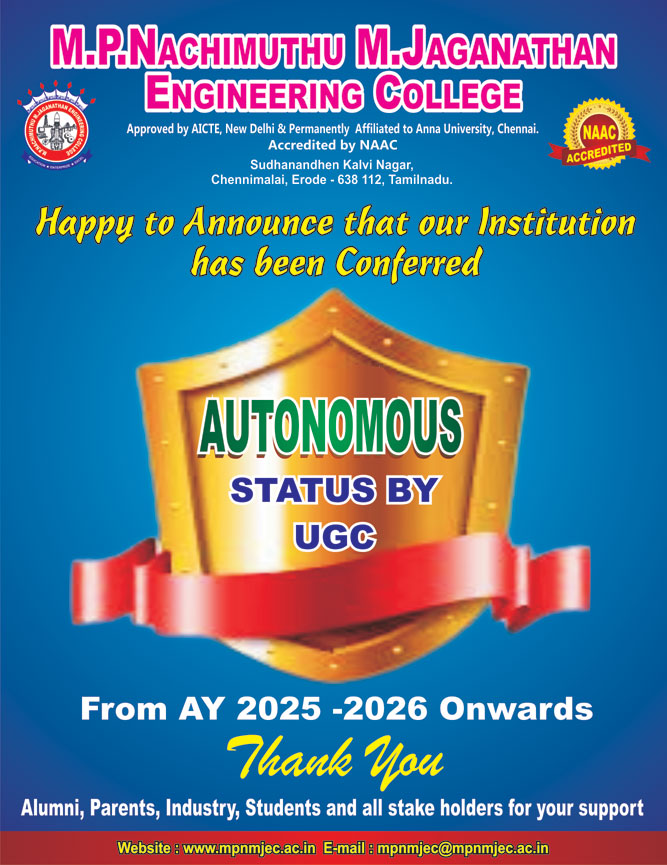Vision
To produce proficient engineers in the field of computer science and engineering to cater the needs of industry and society.
Mission
- To educate students with the fundamental principles through effective teaching learning process with strong academic and technical skills.
- To provide ambience for research, consultancy and entrepreneurship
- To mould the students with ethical principles for developing new software and system for fulfilling industrial and societal needs.
Program Educational Objectives (PEOs)
- Graduates will have a sufficient understanding in the field of computer science and engineering including scientific principles, analytical techniques and design methodologies.
- Graduates of computer science and engineering will have successful career in software and hardware industries or pursue higher studies/research or become entrepreneurs.
- Graduates will apply contemporary technologies in computer science and engineering and skills to develop solution for realistic and social issues.
Program Outcomes (Pos)
- Apply the knowledge of mathematics, science, engineering fundamentals and an engineering specialization to the solution of complex engineering problems.
- Identify, formulate, review research literature, and analyze complex engineering problems reaching substantiated conclusions using first principles of mathematics, natural sciences and engineering sciences.
- Design solutions for complex engineering problems and design system components or processes that meet the specified needs with appropriate consideration for the public health and safety, and the cultural, societal, and environmental considerations.
- Use research-based knowledge and research methods including design of experiments, analysis and interpretation of data, and synthesis of the information to provide valid conclusions.
- Create, select, and apply appropriate techniques, resources and modern engineering and IT tools including prediction and modeling to complex engineering activities with an understanding of the limitations.
- Apply reasoning informed by the contextual knowledge to assess societal, health, safety, legal and cultural issues and the consequent responsibilities relevant to the professional engineering practice.
- Understand the impact of the professional engineering solutions in societal and environmental contexts, and demonstrate the knowledge of and need for sustainable development.
- Apply ethical principles and commit to professional ethics and responsibilities and norms of the engineering practice.
- Function effectively as an individual, and as a member or leader in diverse teams and in multidisciplinary settings.
- Communicate effectively on complex engineering activities with the engineering community and with society at large, such as, being able to comprehend and write effective reports and design documentation, make effective presentations and give and receive clear instructions.
- Demonstrate knowledge and understanding of the engineering and management principles and apply these to one‘s own work, as a member and leader in a team to manage projects and in multidisciplinary environments.
- Recognize the need for, and have the preparation and ability to engage in independent and life-long learning in the broadest context of technological change.
Program Specific Objectives (PSOs)
- To analyze, design and develop computing solutions by applying foundational concepts of computer science and engineering.
- To apply software engineering principles and practices for developing quality software for scientific and business applications.
- To adapt to emerging information and communication technologies (ICT) to innovate ideas and solutions to existing / novel problems.




